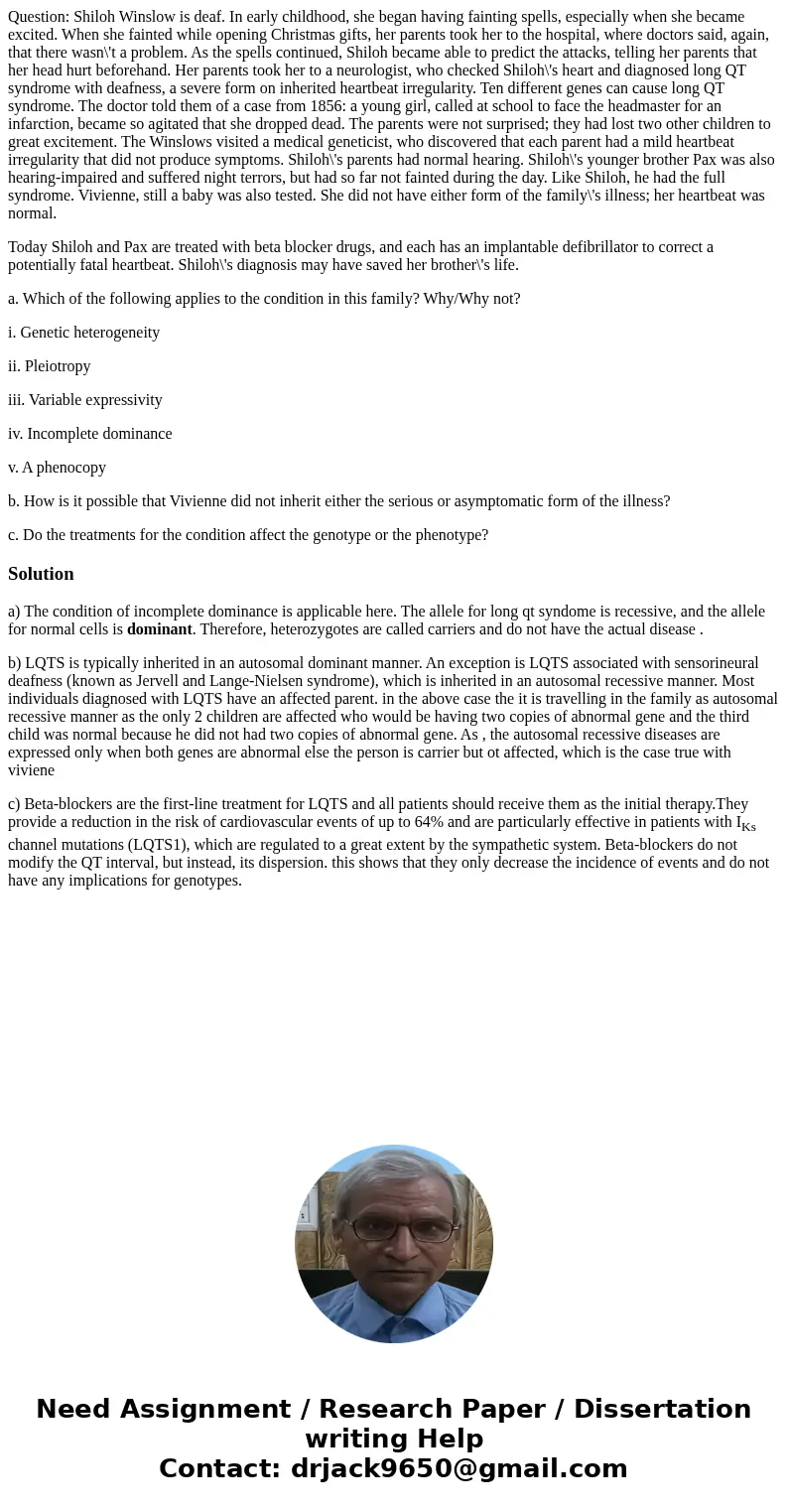Question Shiloh Winslow is deaf In early childhood she began
Question: Shiloh Winslow is deaf. In early childhood, she began having fainting spells, especially when she became excited. When she fainted while opening Christmas gifts, her parents took her to the hospital, where doctors said, again, that there wasn\'t a problem. As the spells continued, Shiloh became able to predict the attacks, telling her parents that her head hurt beforehand. Her parents took her to a neurologist, who checked Shiloh\'s heart and diagnosed long QT syndrome with deafness, a severe form on inherited heartbeat irregularity. Ten different genes can cause long QT syndrome. The doctor told them of a case from 1856: a young girl, called at school to face the headmaster for an infarction, became so agitated that she dropped dead. The parents were not surprised; they had lost two other children to great excitement. The Winslows visited a medical geneticist, who discovered that each parent had a mild heartbeat irregularity that did not produce symptoms. Shiloh\'s parents had normal hearing. Shiloh\'s younger brother Pax was also hearing-impaired and suffered night terrors, but had so far not fainted during the day. Like Shiloh, he had the full syndrome. Vivienne, still a baby was also tested. She did not have either form of the family\'s illness; her heartbeat was normal.
Today Shiloh and Pax are treated with beta blocker drugs, and each has an implantable defibrillator to correct a potentially fatal heartbeat. Shiloh\'s diagnosis may have saved her brother\'s life.
a. Which of the following applies to the condition in this family? Why/Why not?
i. Genetic heterogeneity
ii. Pleiotropy
iii. Variable expressivity
iv. Incomplete dominance
v. A phenocopy
b. How is it possible that Vivienne did not inherit either the serious or asymptomatic form of the illness?
c. Do the treatments for the condition affect the genotype or the phenotype?
Solution
a) The condition of incomplete dominance is applicable here. The allele for long qt syndome is recessive, and the allele for normal cells is dominant. Therefore, heterozygotes are called carriers and do not have the actual disease .
b) LQTS is typically inherited in an autosomal dominant manner. An exception is LQTS associated with sensorineural deafness (known as Jervell and Lange-Nielsen syndrome), which is inherited in an autosomal recessive manner. Most individuals diagnosed with LQTS have an affected parent. in the above case the it is travelling in the family as autosomal recessive manner as the only 2 children are affected who would be having two copies of abnormal gene and the third child was normal because he did not had two copies of abnormal gene. As , the autosomal recessive diseases are expressed only when both genes are abnormal else the person is carrier but ot affected, which is the case true with viviene
c) Beta-blockers are the first-line treatment for LQTS and all patients should receive them as the initial therapy.They provide a reduction in the risk of cardiovascular events of up to 64% and are particularly effective in patients with IKs channel mutations (LQTS1), which are regulated to a great extent by the sympathetic system. Beta-blockers do not modify the QT interval, but instead, its dispersion. this shows that they only decrease the incidence of events and do not have any implications for genotypes.

 Homework Sourse
Homework Sourse